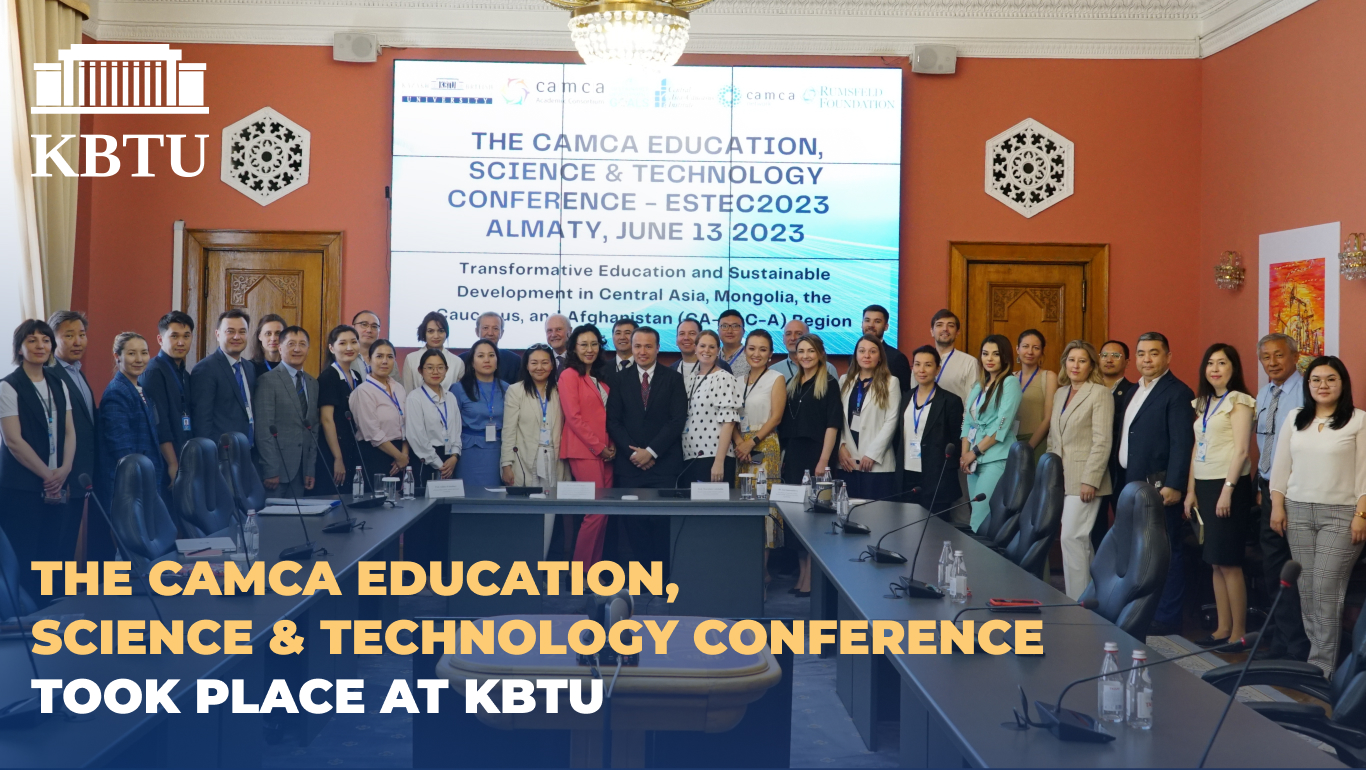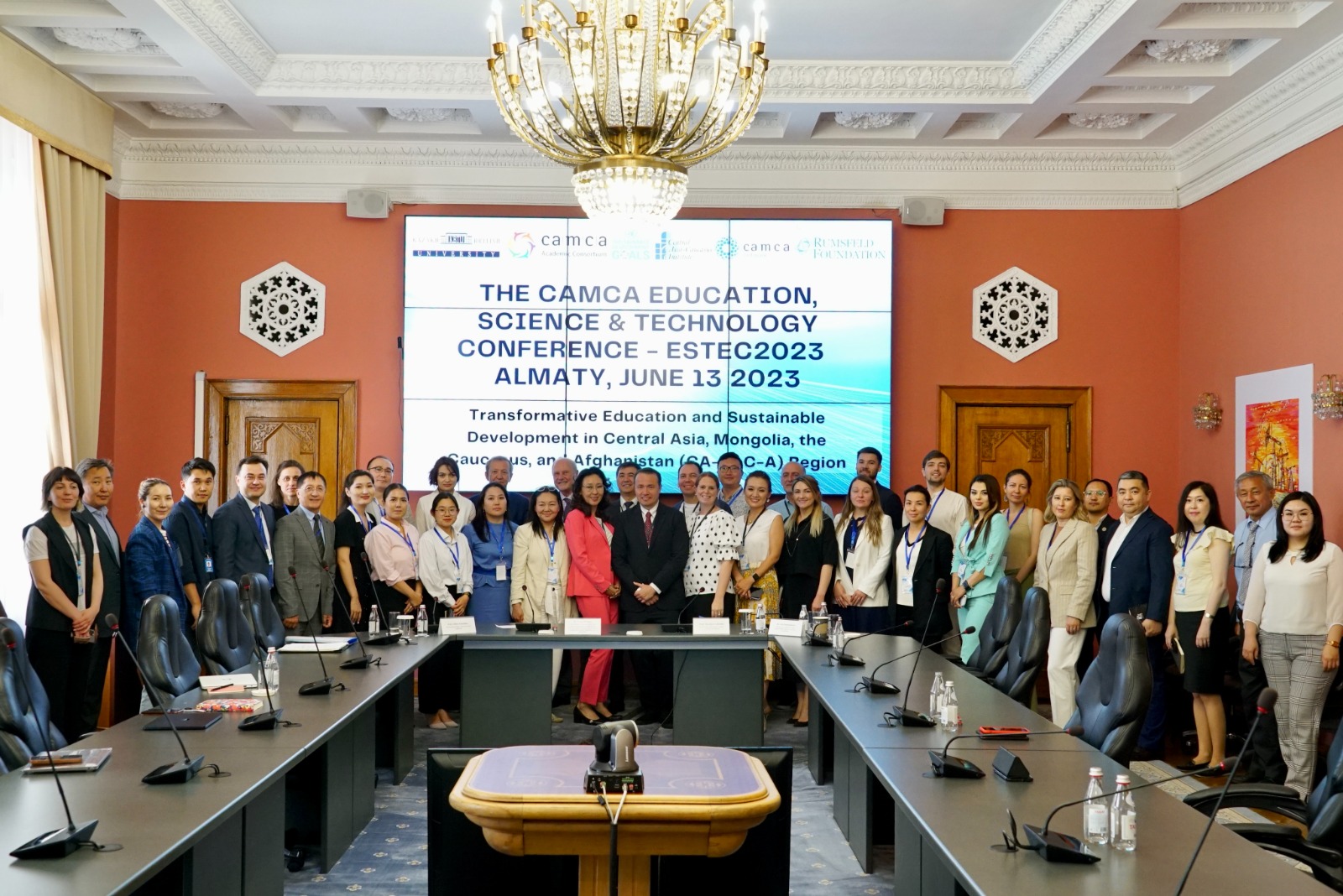 Almaty hosted the CAMCA Conference on Education, Science, and Technology (ESTEC-2023). The conference focused on "Transformative Education and Sustainable Development in the CAMCA Region," which encompasses Central Asia, Mongolia, the Caucasus, and Afghanistan. Educators, scientists, researchers, and practitioners gathered to explore how transformative education can contribute to sustainable development in the region. The participants emphasized the importance of adopting a holistic approach that considers the cultural, social, and economic diversity of the area.
Almaty hosted the CAMCA Conference on Education, Science, and Technology (ESTEC-2023). The conference focused on "Transformative Education and Sustainable Development in the CAMCA Region," which encompasses Central Asia, Mongolia, the Caucasus, and Afghanistan. Educators, scientists, researchers, and practitioners gathered to explore how transformative education can contribute to sustainable development in the region. The participants emphasized the importance of adopting a holistic approach that considers the cultural, social, and economic diversity of the area.
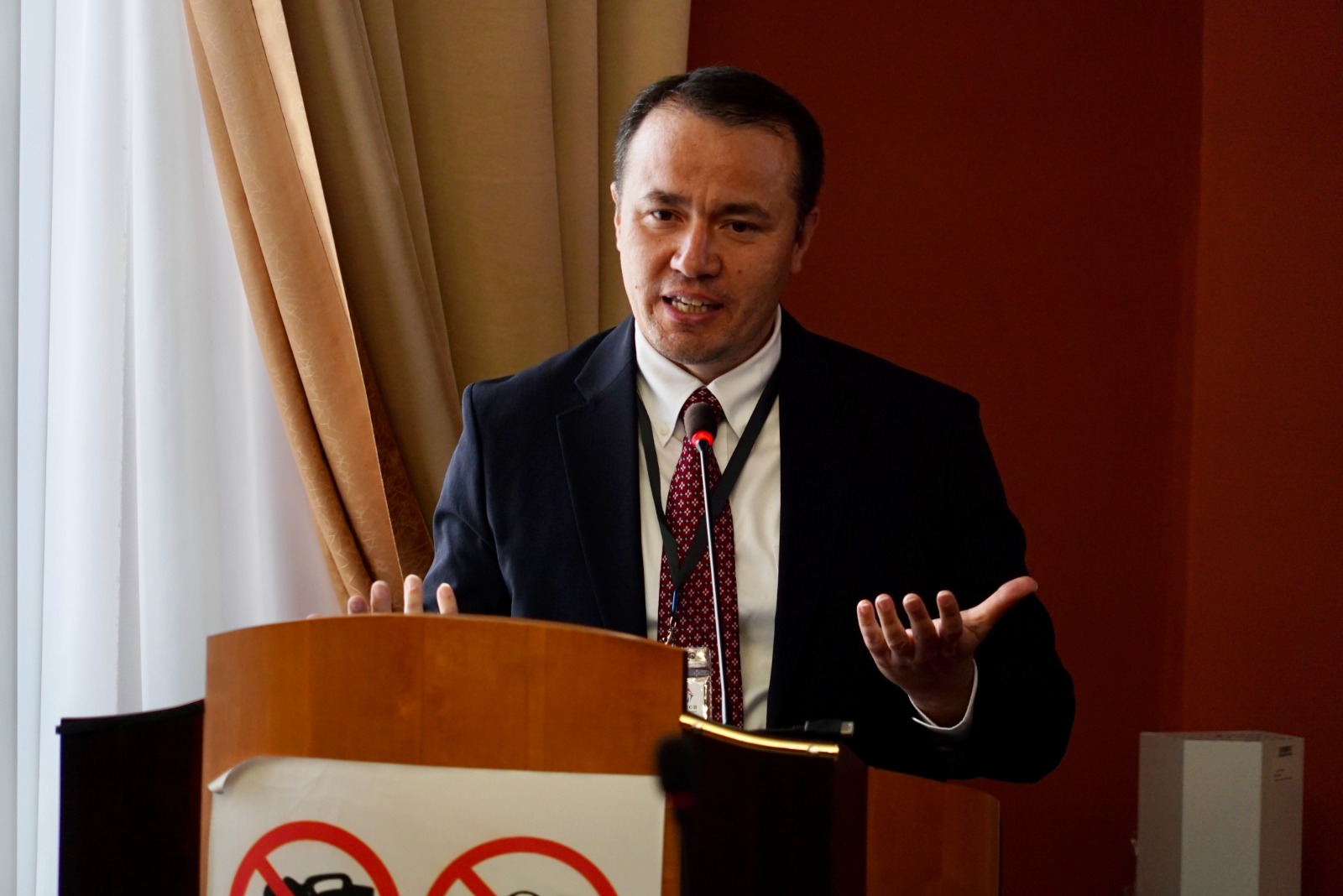
During the opening ceremony, Murod Ismailov, President of the CAMCA Academic Consortium and CAMCA Academy, Associate Professor at the University of Tsukuba, Japan, delivered a welcoming speech. He highlighted the significance of education in the overall progress of the region, stating, “While we often discuss continuous development, economic and political aspects, we must not overlook the educational dimension, which is vital in all processes. It is crucial for all ten countries in the CAMCA region to move forward together to achieve progress seamlessly”.
Frederick Starr, Chairman of the Central Asia, and the Caucasus Institute, urged participants to reconsider the notion of 'ordinary specialists.' He stated, “The term "specialist" carries different meanings and importance in Russian and English. In Central Asia, a specialist is someone who possesses comprehensive knowledge in their field and is considered infallible. However, by focusing solely on creating specialists, we risk producing narrow-minded professionals. Our goal should be to educate individuals who are well-rounded and knowledgeable. Today, we need to determine what it means to be an "educated person" and identify the necessary knowledge and skills. This endeavor goes beyond science and technology and delves into culture and history”.
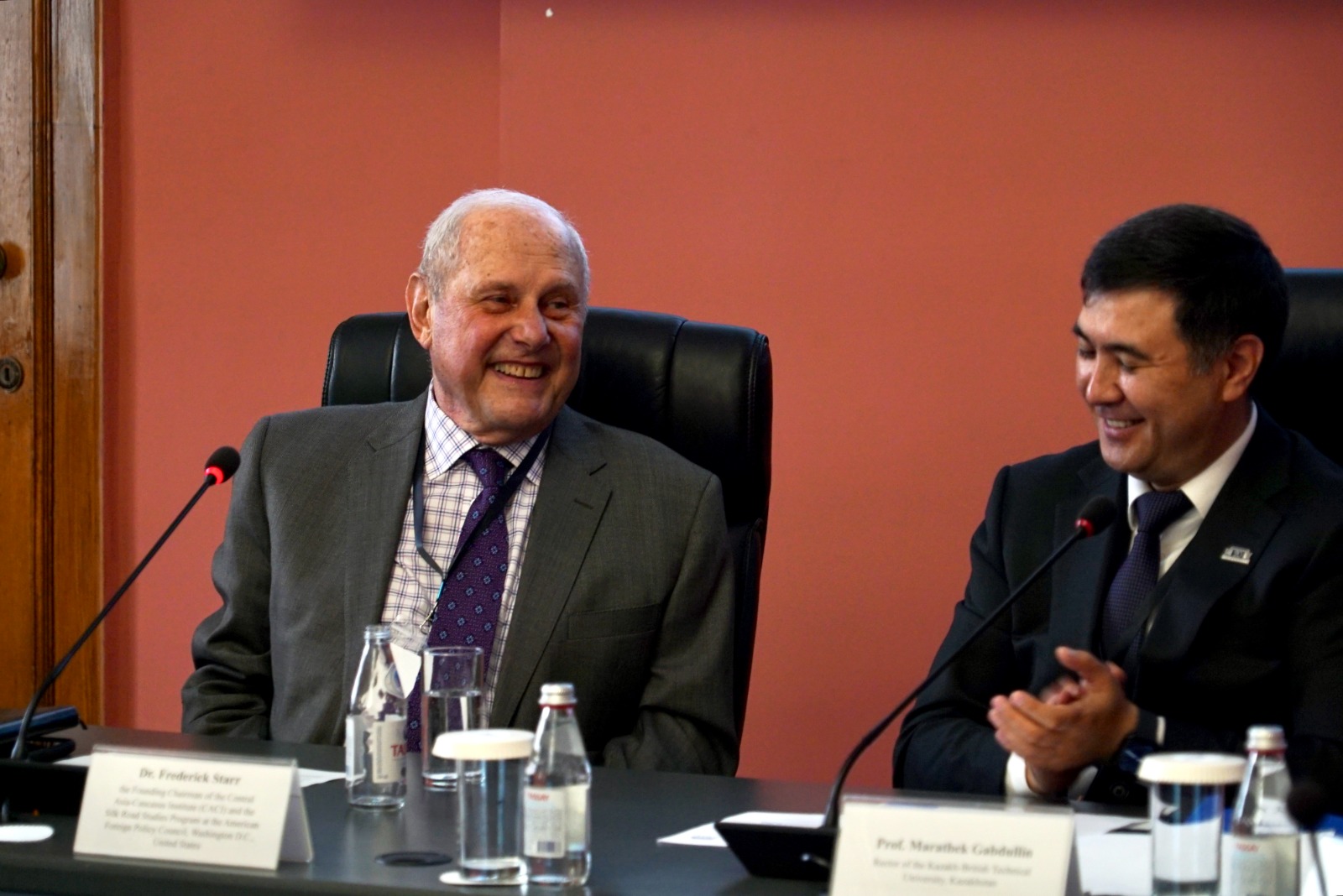 Maratbek Gabdullin, Rector of the Kazakh-British Technical University, stressed the significance of integrating education, science, and business for sustainable development, innovation, and progress in society. In his speech, he stated, “Education is the cornerstone of progress, and by exchanging knowledge, ideas, and experiences, we can unlock the potential of our people and shape a better future for our societies. We are confident that this conference will enhance our understanding of the challenges and opportunities in the CAMCA region, inspiring practical strategies to move us forward”. He also announced KBTU's participation in the CAMCA Regional Forum exhibition, where the university will showcase innovative educational programs, advanced research initiatives, and solutions to regional problems.
Maratbek Gabdullin, Rector of the Kazakh-British Technical University, stressed the significance of integrating education, science, and business for sustainable development, innovation, and progress in society. In his speech, he stated, “Education is the cornerstone of progress, and by exchanging knowledge, ideas, and experiences, we can unlock the potential of our people and shape a better future for our societies. We are confident that this conference will enhance our understanding of the challenges and opportunities in the CAMCA region, inspiring practical strategies to move us forward”. He also announced KBTU's participation in the CAMCA Regional Forum exhibition, where the university will showcase innovative educational programs, advanced research initiatives, and solutions to regional problems.
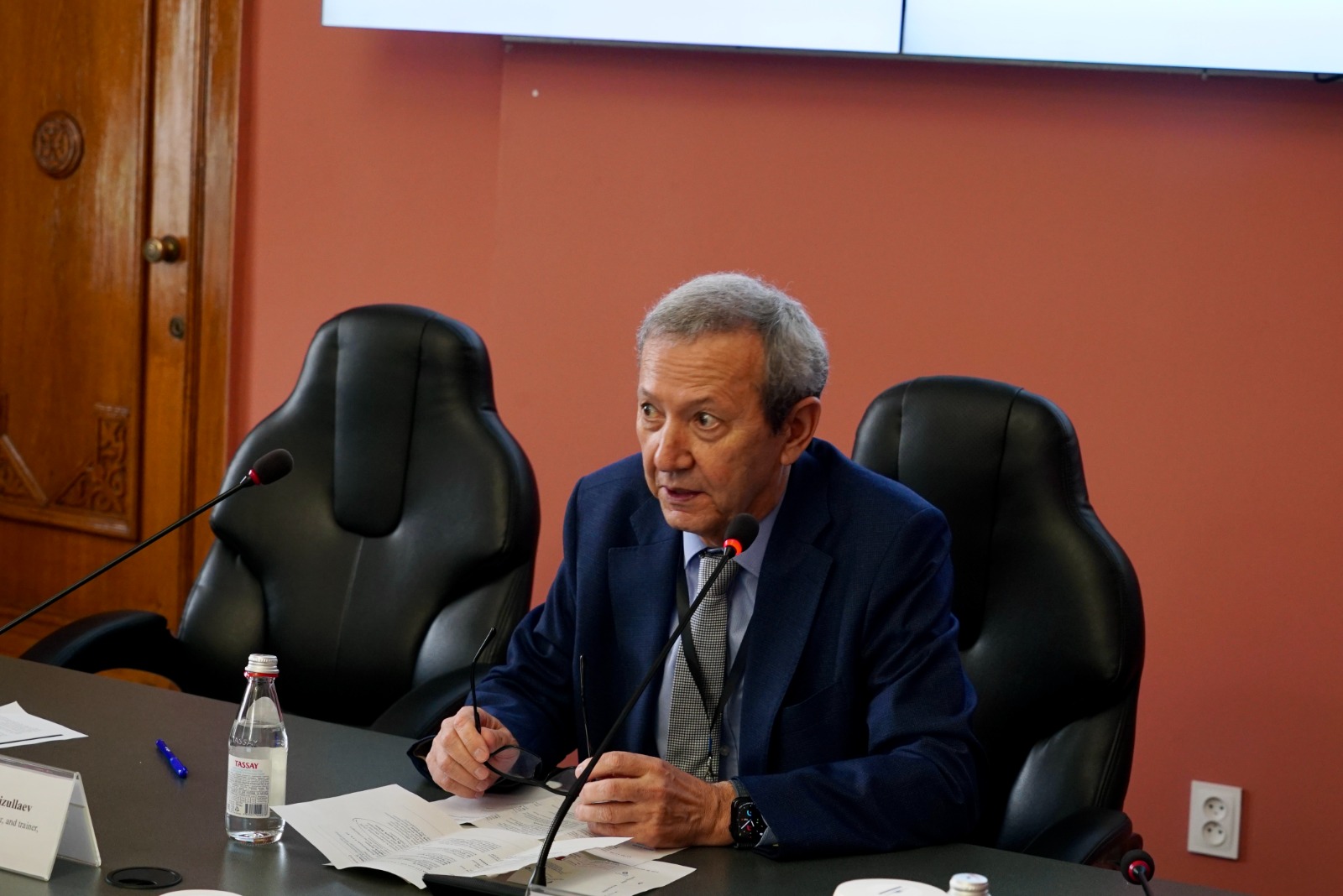 Alisher Faizullaev, a distinguished scientist, author, and trainer, discussed the skills required for teachers in the 21st century. He emphasized the importance of creativity in teaching and shared his experience and observations, stating, “We must engage students in activities, unite them with interesting ideas. A creative atmosphere fosters greater knowledge acquisition. Traditional education places the teacher at the center, assuming the role of an authoritative figure who knows everything. The student, in turn, remains passive. Such an approach hampers creativity. In the present era, with numerous external influences, creative thinking and new ideas are essential. When teaching, remember that major corporations recruit candidates based on creativity tests! The learning environment is also crucial. Allow students the freedom to explore and study independently. A great teacher is not just someone who assesses quality but someone who listens and unites”.
Alisher Faizullaev, a distinguished scientist, author, and trainer, discussed the skills required for teachers in the 21st century. He emphasized the importance of creativity in teaching and shared his experience and observations, stating, “We must engage students in activities, unite them with interesting ideas. A creative atmosphere fosters greater knowledge acquisition. Traditional education places the teacher at the center, assuming the role of an authoritative figure who knows everything. The student, in turn, remains passive. Such an approach hampers creativity. In the present era, with numerous external influences, creative thinking and new ideas are essential. When teaching, remember that major corporations recruit candidates based on creativity tests! The learning environment is also crucial. Allow students the freedom to explore and study independently. A great teacher is not just someone who assesses quality but someone who listens and unites”.
 Representatives from the University of California at Berkeley, including Ellinor Arzbaecher, Anu Thirunarayanan, and Nicole Parker, also participated in the conference's opening ceremony. These co-coordinators of the project 'Solutions for a Sustainable and Just Future' shared insights on the development of ecological education programs in the United States. They highlighted the active involvement of University of California students in environmental research and processes, as lectures are conducted interactively. They stated, “Today, it is crucial to address ecology both in the United States and Central Asian countries. Visual demonstrations and student-led experiments are essential to help them understand the importance and causes of the recurring disasters. Based on our educational program's experience, we have realized the importance of listening to students, as they possess creative perspectives for solving environmental problems”.
Representatives from the University of California at Berkeley, including Ellinor Arzbaecher, Anu Thirunarayanan, and Nicole Parker, also participated in the conference's opening ceremony. These co-coordinators of the project 'Solutions for a Sustainable and Just Future' shared insights on the development of ecological education programs in the United States. They highlighted the active involvement of University of California students in environmental research and processes, as lectures are conducted interactively. They stated, “Today, it is crucial to address ecology both in the United States and Central Asian countries. Visual demonstrations and student-led experiments are essential to help them understand the importance and causes of the recurring disasters. Based on our educational program's experience, we have realized the importance of listening to students, as they possess creative perspectives for solving environmental problems”.
Additionally, the conference featured keynote speeches and presentations covering various topics, including innovative approaches to teaching and learning, STEM education for sustainable development, education and development in rural areas, the role of technology in education and development, inclusive education and social cohesion, and policy and management for transformative education and sustainable development.
Given the diverse geography, culture, and socio-economic conditions of the CAMCA region, this conference holds significant relevance. It is crucial to adopt a comprehensive approach to education and development, especially in the face of current challenges, and foster more inclusive and resilient societies. Transformative education can play a critical role in addressing these challenges and building resilient communities.


